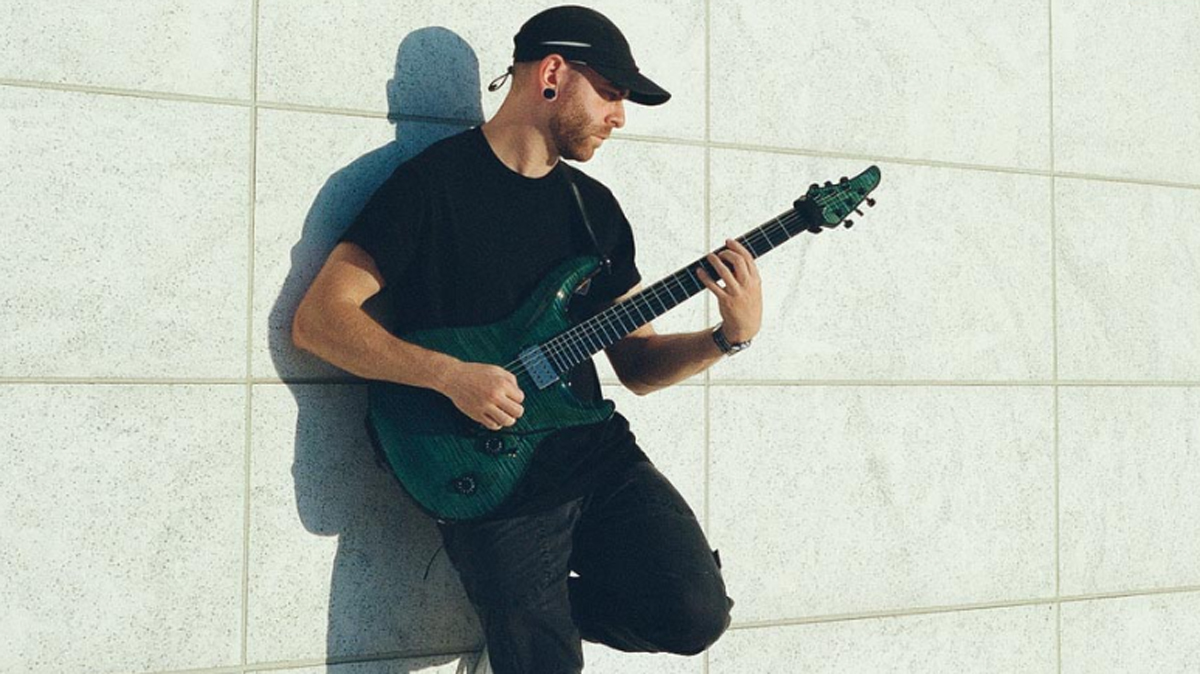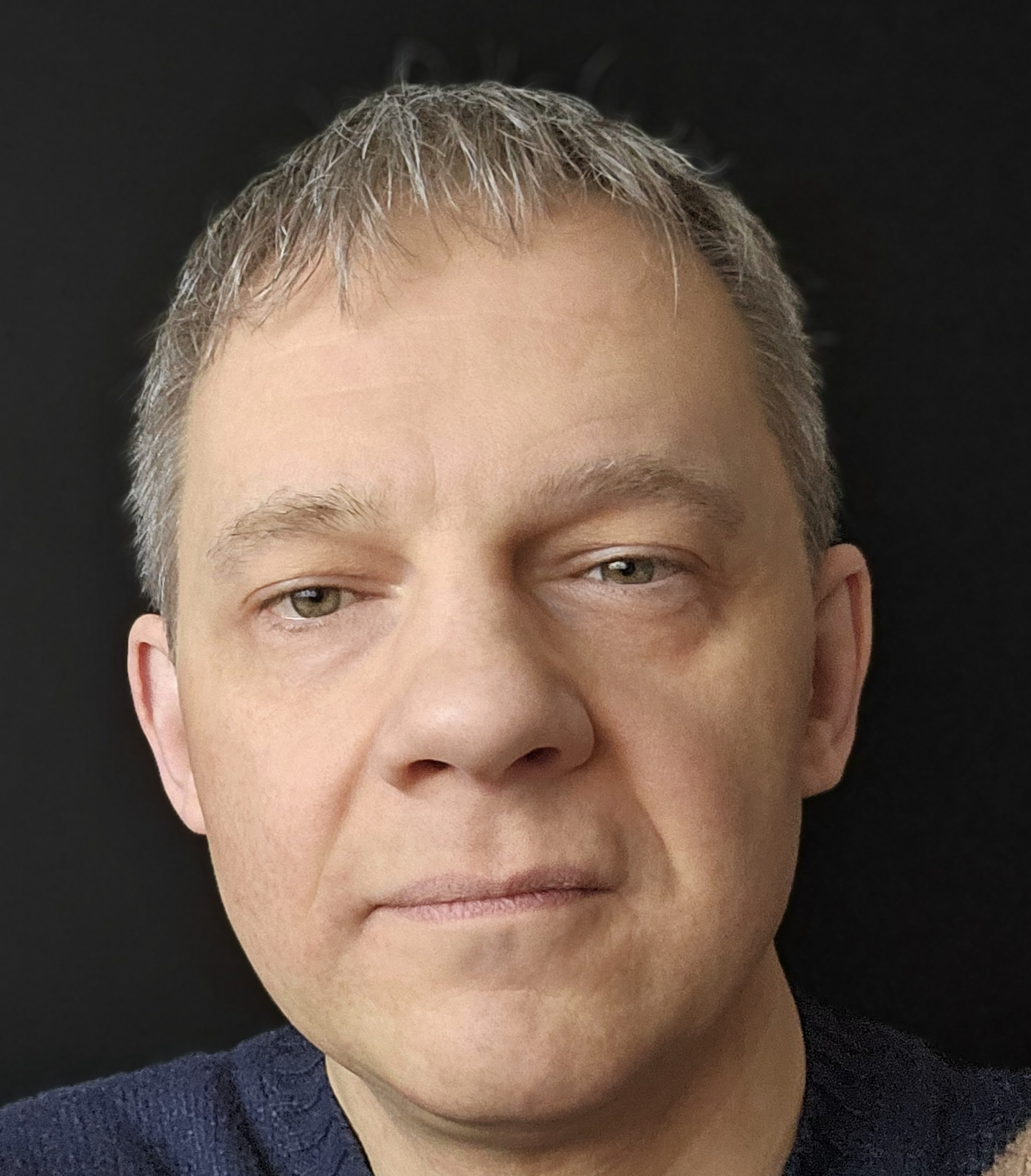Intervals' Aaron Marshall takes a deep dive into his guitar-playing philosophy, and talks tones, tempos, modes and his favorite guitar instrumentals
After Wolfgang Van Halen named him his favorite guitarist right now, find out how the Canadian prog virtuoso tackles soloing, melodies, harmonies and other aspects of instrumental guitar from the man himself

All the latest guitar news, interviews, lessons, reviews, deals and more, direct to your inbox!
You are now subscribed
Your newsletter sign-up was successful
Those well-versed in the world of instrumental guitar will be familiar with the feats of Intervals virtuoso Aaron Marshall, who is currently one of the players forefront of the genre pushing prog music to new heights.
You only need to go back to late 2020 to find out why Marshall is held in such high regard among his guitar-playing peers. Intervals’ most recent studio album, Circadian, is an instrumental masterclass, which puts the Schecter signature artist’s virtuosic playing style on display.
Circadian – and Marshall, specifically – has been the subject of heightened interest in recent days, after Wolfgang Van Halen name-dropped the Canadian prog mastermind in the January 2023 issue of Guitar World, and labeled his 2020 album as his favorite record of the past two years. Not only that, the Mammoth WVH frontman went as far as to say that Marshall was his “favorite guitar player of today”.
“I feel like I have become a better guitar player because I’ve tried to learn all the songs on [Circadian],” Van Halen said. “[Marshall] has such a wonderful melodic sensibility that is so different from people in his genre of the heavier, progressive, metal-y rock sort of thing. It really separates him from everyone else. I can’t speak enough of how wonderful a guitar player and songwriter he is.”
Back in July 2021, Marshall sat down with Guitar Techniques to take a deep dive into the instrumental playing style that Van Halen holds in such high regard, and picked apart his approach to tones, tempos, melodies and modes, as well as keys, harmonies and three of his favorite guitar instrumentals.
What is it about guitar instrumentals that appeals?
“I love the guitar, but I also love all music in general. So I suppose my passion for guitar-driven music is a product of wanting to compose and complete fully realised pieces that don't rely on another element to feel complete. It's not a preference, but perhaps born of necessity, rather. I like knowing that I can paint on the canvas without limitation, or compromise.”
All the latest guitar news, interviews, lessons, reviews, deals and more, direct to your inbox!
What do you think an instrumental can provide a listener that a vocal song can't?
“There is certainly more room left for interpretation from the perspective of the listener. Instrumental music doesn't pander politically, religiously, or even emotionally from an explicit standpoint. Music itself is a universal language that is subjective and I think there is something very special about that.”
Any tendencies that you aim to embrace or avoid – rhythms, harmony, approach, tones?
“Aspects I embrace are the intuitive use of themes and motifs. I used to fight these, but the more I write songs, the more I realize those things happen for a reason. I think they can become the hallmark, or signature, for artists in this space, and I really enjoy being able to link varying compositions through this method.
“A tactile use of repetition in general is something I wholeheartedly embrace, counterweighted by decisive variation, or embellishment, of course. I'm not sure there is much I actively avoid, as I'm trying to be more in tune with my intuition.
“I'm not sure deliberately avoiding anything is productive, aside from a deliberate use of omission or limitation as a writing tool. But that's more at a micro level, versus the macro perspective.”
Is a typical song structure – intro, verse, chorus, etc – always relevant for an instrumental?
“I don't think it's always relevant but it certainly works best for me. Some semblance of traditional structure allows me to draw a straight line through my ideas and create pieces that are book ended, and tell a concise story.
“The through-composed approach certainly works for some artists, and I'm tempted at times, but I seem to find myself gravitating towards a relative framework, typically. Structure has no bearing on the content of a composition though, only how it moves.”
How useful is studying a vocalist's approach for creating or playing guitar melodies?
There is an approach that allows you to deliver a melody on the guitar in a much different way if you think about how the voice functions, versus all of the distractions that exist within the guitar
“Very useful, and often overlooked! I find myself to be melodically inspired the most by vocalists. There is a mindset and approach that allows you to deliver a melody on the guitar in a much different way if you think about how the voice functions, versus all of the opportunities and distractions that exist within the guitar. The same applies to all other instruments, like woodwinds, brass, piano, etc...”
How do you start writing one; is there a typical approach or inspiration for you?
“More often than not, an idea is the product of jamming and exploring freely, with no preconceptions. Then my intuition allows me to curate ideas, and zoom in to examine them further if I've found something that I know I can expand on further.”
A post shared by I N T Ξ R V Λ L S (@aaronintervals)
A photo posted by on
What do you aim for when your performance is centre stage as with an instrumental?
“I aim to tell a story, just as any instrumental with a focal role is meant to. I feel like I trade the additional dimension of lyrics, for the ability to shift between a melodic and vocal approach to lines that I want to stick with the listener, and then into phrasing and approaches that are exclusive to the electric guitar. I don't ever feel stuck, and I am able to continue telling the story with nuance and intrigue, or with vigour and intensity.”
Many vocal songs feature a solo that starts low and slow then finishes high and fast. Is this useful for instrumental writing, in developing pace and dynamics?
“The concept of dynamic and contrast is crucial to music in general, whether we're talking about how something develops over the course of a solo, or over the course of an entire song. There is certainly a time and place to come in guns blazing, if that is the desired vibe, but more often than not, taking time to build something, and always leaving a little extra gas in the tank, is much more musical and interesting overall.”
I utilize everything from full-tilt gain, to crystal clean. The music is what determines this
What type of guitar tone do you prefer for instrumentals?
“This is definitely dependent on the mood or emotion of a given piece of music. I like and utilize everything from full-tilt gain, to crystal clean. The music is what determines this.”
Favourite keys or tempos?
“There are certainly particular keys that provide more opportunities on the instrument based on how it's tuned. But I can't say I favor one over any others. I tend to let intuition determine this based on whatever it is that I'm working with. Same with tempo. There is a sweet spot for everything, it just depends on how closely you are listening.”
Do you find minor or major keys easier to write in?
“I don't find one easier than the other, no. This is largely dependent on perspective though; your fretboard knowledge will be what determines how you navigate, or what lens you are viewing through.”
And what about modes? Do you have any favorites?
“I try to be open to whatever the music I'm working on requires. But if I had to choose something, I'd say I'm probably a Lydian junky.”
What about modulations into new keys?
“Certainly appropriate if the progression or tune calls for it.”
A post shared by I N T Ξ R V Λ L S (@aaronintervals)
A photo posted by on
Do you view the backing band differently than you would when performing a vocal number?
“I don't, and I think this is what makes a difference in a lot of instrumental guitar music. I like an interactive approach to composing the backdrop for a song, where I leave myself sub melodies, and lines, or other opportunities for my lead guitars to chime in and out, through unison, or in harmony.
“When I'm composing, I'm not actually thinking of the rest of the instrumentation as ‘the backing band’, and I think this is where the train comes off the rails with a lot of guitar-driven music. I am focused on composing music overall, and not just thinking about something the other instruments can do while I exercise chops.
“95 percent of the time, I leave all of my lead work until last, and then I bounce around and tweak moments so that everything serves a symbiotic purpose, equating in a song, rather than just a backing track with guitar on it. I truly feel that this is where a lot of guitar players lose the plot with music, in this space.”
How do you feel about harmonizing melodies?
“Harmony and embellishment is a useful tool and effective where necessary. These days, I'm listening for where it is most necessary, rather than ‘let's harmonize everything!’ I also listen intently for non-linear harmony that supports a given line the way you would sing a melody, versus the obvious straight 3rds above or below.”
And what three guitar instrumentals do you consider iconic, or have inspired you?
“Still Hurts by Marco Sfogli is a huge tune. This may very well be one of, if not, the first song I heard by Marco and it contains all the things I love about his playing and writing. Insanely melodic and tasteful, but also some wild lines peppered in throughout. So good!
“For Andy Timmons, I'd have to go with Electric Gypsy. This is just such an iconic tune, and I'd choose this for the same reason as my previous choice. This tune contains all of Andy's signature vibes and the tone is to die for!
“Lastly, from Greg Howe, I'd go with Child's Play from his Sound Proof record. Tons of pocket, poignant melodies, and some mind-bending lines, like all of Greg's stuff. I also love the octave motif he plays in the verses, along with the main theme the chorus is built around. Such a fun tune!”
- For more info, head to Intervals' official website.

Jason Sidwell (BA Hons, MA, ALCM) was editor of Guitar Techniques, is senior tuition editor for Guitarist and has written/edited over 25,000 printed articles since 1998. He is an advisor/guest tutor for UK music academies, a director/tutor for the International Guitar Foundation (IGF) plus author of How to Play Guitar Step by Step (Dorling Kindersley) and tutorials for The Guardian and Observer. His unique Guitar Day UK teaching events have been running for over a decade. He is also a busy classical guitarist and theatre musician, has recorded with musicians such as Steve Morse, Paul Gilbert, Andy Timmons and Marty Friedman and has a broad cliental for studio guitar work.
- Matt OwenNews Editor, GuitarWorld.com
